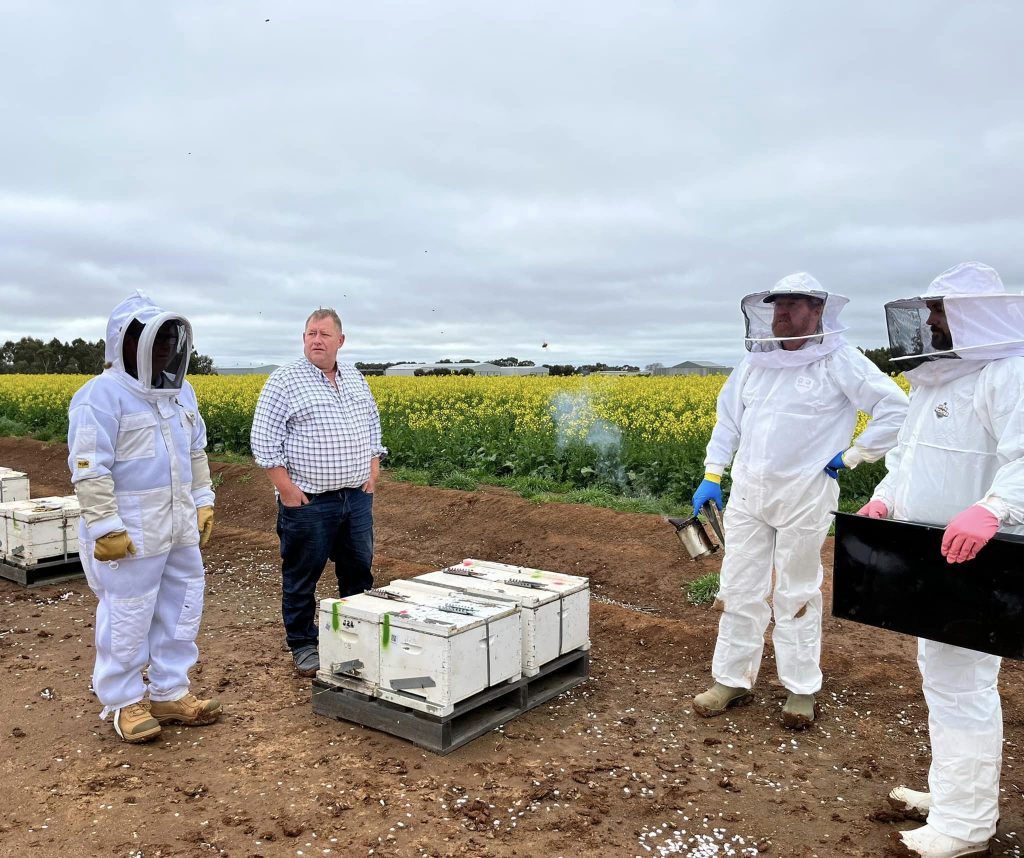
Beekeepers in NSW will be required to undertake more surveillance under changes to the state’s Varroa Mite Emergency Order.
There has been 99 infected premises detected so far, mostly in the Hunter region, since the varroa mite was first detected at the Port of Newcastle in June.
Effective from today the changes to the emergency order include beekeepers alcohol washing a portion of their hives at least every 16 weeks and report the results to the Department of Primary Industries.
The new Order also allows registered commercial beekeepers in the blue general emergency zone to move or sell queens (and escort bees), or queen cells, to another registered beekeeper, within the blue general zone or the purple surveillance emergency zone.
Queen breeders must complete training, comply with alcohol wash requirements, and keep records of sales.
Minister for Agriculture Dugald Saunders said registered beekeepers have shown strong support for the eradication of the pest since it was first detected.
“The surveillance undertaken as part of the Varroa response, combined with the surveillance as hives moved to pollination, help provide greater confidence about the extent of the current incursion.
“That means we can give beekeepers the flexibility they need to continue essential business operations while still maintaining strong biosecurity protocols to ensure we stay on top of this destructive pest.”
Another change will allow beekeepers in red eradication zones to manage swarming by returning extracted honey supers immediately to the hive from which they were removed after honey extraction.
Beekeepers can report results of alcohol washes to NSW DPI by calling 1800 084 881 or via the online form at www.dpi.nsw.gov.au/alcohol-wash, and more information about the Varroa mite response is available from www.dpi.nsw.gov.au/varroa.

